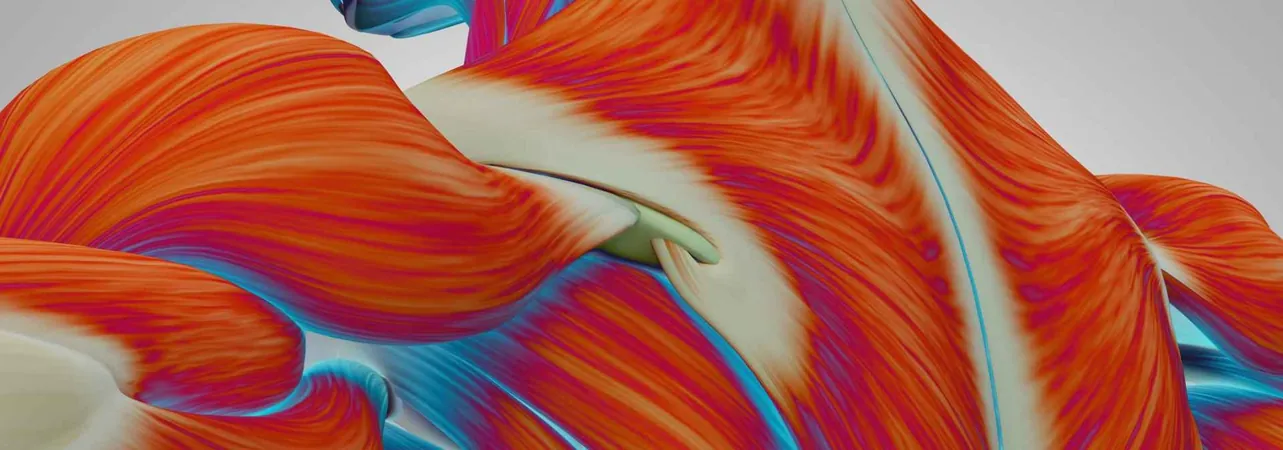
Revolutionary Hormone Therapy Enhances Strength and Mobility in FSHD Patients!
2025-09-08
Author: John Tan
Groundbreaking Research Reveals Potential Treatment for FSHD Patients
A stunning new study has revealed that a powerful combination of growth hormone and testosterone significantly improves muscle mass, strength, and mobility in men battling facioscapulohumeral muscular dystrophy (FSHD). This innovative therapy not only shows remarkable results but is also deemed safe and well-tolerated. Researchers are hopeful that this might extend to other types of muscular dystrophy!
Dr. Chad Heatwole, the leading investigator from the University of Rochester, stated, "We’ve never seen a therapy in FSHD deliver both real gains in strength and lasting benefits after treatment stops. This hormone combination could be the breakthrough we've been waiting for to slow down the disease and help patients regain function."
Understanding FSHD: The Challenge of a Debilitating Disorder
FSHD is a hereditary muscle disorder that typically strikes in adulthood, progressively weakening muscles in the face, shoulders, upper arms, and hips. Patients often find themselves struggling with mobility and daily activities, with no current treatments available to halt or reverse this devastating decline.
Innovative Treatment Protocol: A Two-Hormone Approach
In this innovative study, Dr. Heatwole and his team enrolled 20 adult men who could still walk unassisted. For six months, participants self-administered daily injections of recombinant human growth hormone (rhGH) to stimulate cell growth, along with biweekly testosterone shots to boost muscle development.
The results were impressive! Almost every participant—19 out of 20—completed the program with minimal side effects, primarily mild soreness at the injection sites. By the end of the study, subjects had gained an average of 4.5 pounds of lean muscle and lost about 3 pounds of fat.
In a simple six-minute walking test, participants improved their distance by an astonishing 37 meters (approximately 120 feet), making everyday activities like visiting the mailbox significantly easier. Furthermore, muscle strength increased by about 3% beyond expected levels for their age and size, contributing to a lower overall disease burden.
Promising Future: Larger Studies on the Horizon
These astounding outcomes lay the groundwork for larger clinical trials. Heatwole's team is gearing up for more extensive studies to validate these findings and refine treatment protocols, with plans to include women in future research efforts. If confirmed, this hormone therapy could become the first effective approach not only to slow FSHD but to restore strength and enhance the quality of life.
Dr. Heatwole highlights that this therapy could have implications far beyond FSHD, potentially benefiting patients with a multitude of muscular dystrophies. With numerous genetic therapies being developed, this hormone combination represents a broad-spectrum treatment option that could tackle various rare and inadequately treated neuromuscular disorders.
This study, supported by the National Institute of Neurological Disorders and Stroke and Pfizer, showcases a beacon of hope for countless individuals affected by FSHD and similar diseases. Stay tuned as researchers continue to unveil the full potential of this groundbreaking therapy!

 Brasil (PT)
Brasil (PT)
 Canada (EN)
Canada (EN)
 Chile (ES)
Chile (ES)
 Česko (CS)
Česko (CS)
 대한민국 (KO)
대한민국 (KO)
 España (ES)
España (ES)
 France (FR)
France (FR)
 Hong Kong (EN)
Hong Kong (EN)
 Italia (IT)
Italia (IT)
 日本 (JA)
日本 (JA)
 Magyarország (HU)
Magyarország (HU)
 Norge (NO)
Norge (NO)
 Polska (PL)
Polska (PL)
 Schweiz (DE)
Schweiz (DE)
 Singapore (EN)
Singapore (EN)
 Sverige (SV)
Sverige (SV)
 Suomi (FI)
Suomi (FI)
 Türkiye (TR)
Türkiye (TR)
 الإمارات العربية المتحدة (AR)
الإمارات العربية المتحدة (AR)